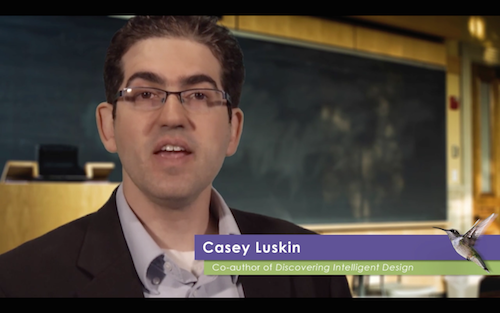 Education
Education
 Evolution
Evolution
 Intelligent Design
Intelligent Design
A New Way to Explore ID: Discovering Intelligent Design Curriculum Now Includes Online Learning

Does nature give positive evidence of purpose and design? Let’s face it: the question posed by the theory of intelligent design is an ultimate question, relevant to young and old alike, scientists and non-scientists, thoughtful people of all backgrounds. But weighing the scientific evidence for ID can be daunting. With that in mind, have you been looking for a new way to educate yourself or your family about ID?
Well, as of today, you’re in luck.
A new online component for the Discovering Intelligent Design curriculum from Discovery Institute Press is now available! And it’s free!

First published in 2013, Discovering Intelligent Design was developed for homeschool students, private school students, and adults interested in obtaining a comprehensive introduction to the evidence for ID in the areas of cosmology, the origin of life, and biological complexity. The curriculum includes a textbook, a workbook, and a DVD, and was created by Hallie and Gary Kemper in conjunction with Center for Science & Culture Research Coordinator Casey Luskin.
The new online companion to Discovering Intelligent Design features short videos by co-author Casey Luskin introducing the six main units of the course and highlighting their key themes. It includes detailed outlines and learning goals for each chapter. There are also twenty PDFs and twenty quizzes covering topics such as cosmic design, complexity of life, common descent, and academic freedom.

“The online companion is intended to make Discovering Intelligent Design even easier to use,” explains Janine Dixon, Educational Outreach Coordinator for Discovery Institute’s Center for Science & Culture. “The short video lectures and chapter outlines make the course more accessible for independent and self-paced learners, and the online quizzes provide instant feedback on whether you are actually learning the material.”
Because the quizzes are automatically scored, homeschool and private school teachers won’t have as much grading to do when using the curriculum.

DID is the only comprehensive curriculum that presents both the biological and cosmological evidence in support of the theory of intelligent design, at a layperson’s level. It equips young people and adults to critically analyze the arguments in the debate over evolution and intelligent design, encouraging them to follow the evidence wherever it leads and giving them to the tools to do so.
The Discovering Intelligent Design online companion is offered through DiscoveryU, Discovery Institute’s new e-learning platform set up in conjunction with the e-learning provider Thinkific. The platform is designed to be easy to use on desktop, tablet, and mobile devices.
“We’ve wanted to get into online learning for some time,” says CSC Associate Director John West. “But it took us quite a while to find a mobile-friendly and simple to use technology that wasn’t cost prohibitive. We also wanted a platform that would be easy to expand in future years.”
While enrolling in the online version of Discovering Intelligent Design is free, West notes that you will need to purchase a copy of the textbook and DVD to get the most out of the experience.
“We view Discovering Intelligent Design as a test of whether online courses will be helpful to those looking for more information about ID,” adds West. “If the course works well, we hope to develop more offerings.”
